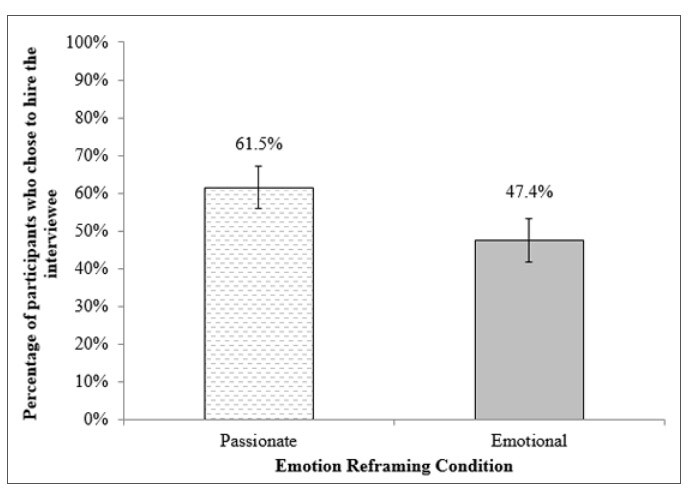
The right way to cry in front of your boss
Crying at work can be more than embarrassing—it can hurt your career. Elizabeth Baily Wolf discusses a technique to reframe distress as passion

Saying you’re emotional is about you, whereas saying you’re passionate is about what the situation is
Image: Shutterstock
New research suggests that if you break out in tears in front of supervisors or colleagues, you have a chance to recover. The key: reframe your distress as passion.
Most people tend to apologize in those situations, says Elizabeth Baily Wolf, a doctoral student in Harvard Business School’s Negotiation, Organizations & Markets unit. But instead of apologizing for being emotional, apologize for being passionate, she advises.
Saying you’re emotional is about you, whereas saying you’re passionate is about what the situation is Wolf says, adding that being passionate is not only socially appropriate in the American workplace, but valued.
People only get emotional about things they care about, so reframing distress as passion isn’t disingenuous, she says.
Take job performance reviews, a situation where despite best efforts to hide emotions, tears are not unknown.
“If you say, ‘I’m just so passionate about doing well here,’ that’s a different conversation than, ‘Oh, I’m sorry I’m being so emotional about this,'" she says. “It’s a mindset shift.”
The “distress display” doesn’t have to be crying. It could be a flushed face, shaking, choking up, or other expressions signaling frustration or sadness. Wolf differentiates those expressions from anger directed at others.
In the paper Managing Perceptions of Distress at Work: Reframing Emotion as Passion, published in the November 2016 issue of Organizational Behavior and Human Decision Processes, Wolf and her colleagues found that those saying they were passionate after displaying distress were viewed as more competent. They also were more likely to be hired and chosen as collaborators.
Co-authors of the study included Alison Wood Brooks, an assistant professor and Hellman Faculty Fellow in the Negotiation, Organizations & Markets unit, Harvard Business School; Jooa Julia Lee, a postdoctoral fellow at the Center for Positive Organizations, University of Michigan; and Sunita Sah, an assistant professor at the Johnson Graduate School of Management, Cornell University.
Reframing to signal competence
For the study, the researchers set up five experiments to tease out how reframing emotion as passion affected both perceptions of competence and hiring decisions. In the first experiment, online participants read vignettes about an individual’s display of distress, which they described as caused by either emotionality or passion. They then rated the competency of that person. Participants perceived those who said they were passionate as more competent than those who said they were emotional, or those who did not provide any information about why they were distressed.
For the second experiment, students at the Harvard Decision Science Lab were paired as storyteller and listener. Storytellers were asked to recount a recent time when they were distressed about academic work: Half focused on how the incident reflected their passion about schoolwork, and the other half, how the incident reflected how emotional they were. Listeners then were asked to rate their partners’ competence. The passionate group was seen as “significantly more competent.”
For the third experiment, participants, who all held full-time jobs, were asked to recall a recent time when a colleague was visibly distressed, and how that demonstrated either passion or emotion. The study also teased out whether the type of profession or relationship between participant and colleague had an effect.
The last two experiments focused on how the framing of passionate versus emotional affected decision-making. In one, participants read a transcript of a job interview in which the interviewees described themselves as getting really passionate or really emotional about work they’d invested a lot of time in. Participants were then asked whether they would hire that individual.
Would you hire a passionate candidate over an emotional one?

The results showed that 61.5 percent of passionate interviewees were hired (hypothetically), compared to 47.4 percent of emotional interviewees.
The final experiment asked participants to choose a partner for a collaborative project that could earn them a financial bonus. They read three descriptions: the narrator hiding distress in front of colleagues; the narrator showing distress in front of colleagues and attributing it to passion; and the narrator showing distress in front of colleagues without attributing it to anything. Although most (42 percent) chose to work with partners who hid their distress, more participants chose partners who attributed a distress display to passion rather than partners who did not attribute their distress to anything.
“If you cry, it’s worse than if you don’t cry, in terms of me perceiving your competence,” Wolf says. “But if you cry, saying it is because you are passionate makes me perceive you as more competent than if you don’t say anything, or say, ‘I’m sorry for being so emotional.’”
The best position for criers
That may not always be the case depending on the relationship between the person in distress and the observer, as well as the organization’s “display rules.” In other words, are you in a field like finance that typically views crying or other signs of distress as inappropriate, or a field like social work that usually has a higher tolerance for emotional displays?
“Where [reframing] really helps is if you’re in an environment where emotion isn’t acceptable,” Wolf says. “If you’re in an organization where people don’t cry, where crying is seen as something that is not OK for you to do, but then suddenly you’re in a situation and you just can’t help but cry, that’s when you’re going to get the most bang for your buck from saying you’re passionate.”
Different gender combinations were used in the experiments to determine whether reframing worked better for men or women. Historically, men’s emotions have been labeled passion or dedication, whereas women’s emotions have been labeled hysteria. Because of those past characterizations, Wolf initially thought that men by default might be seen as more passionate than women.
“ Saying you are upset because you are passionate will help you
“The findings didn’t support that gender angle at all. I was really surprised,” Wolf says. “… It was just evenly good for everyone.”
Although much has been researched about how to hide emotional expressions or how to internally change a negative emotion into a positive one before you express it in front of others, there hasn’t been much research devoted to damage control after tears have been shed.
“Once you’re in that position, which has happened to me a lot of times [and] pretty much to everyone I know, what do you do then? This study addresses that,” Wolf says. “We found that it still would have been better if you hid [your emotions], but usually you can’t in the moment, so what are you going to do? Saying that you are upset because you are passionate will help you.”
This article was provided with permission from Harvard Business School Working Knowledge.




